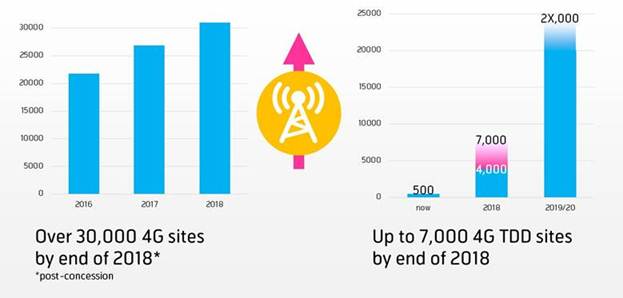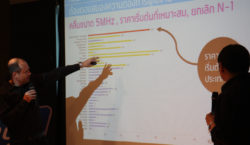The writing was already on the wall for Thailand’s regulator National Broadcasting and Telecommunications Commission (NBTC). In addition to another operator having already opted out Total Access Communication PCL, (Dtac), Norwegian Telenor’s Thailand-base operator, had repeatedly flagged its objections concerning the upcoming 1800 MHz spectrum auction.
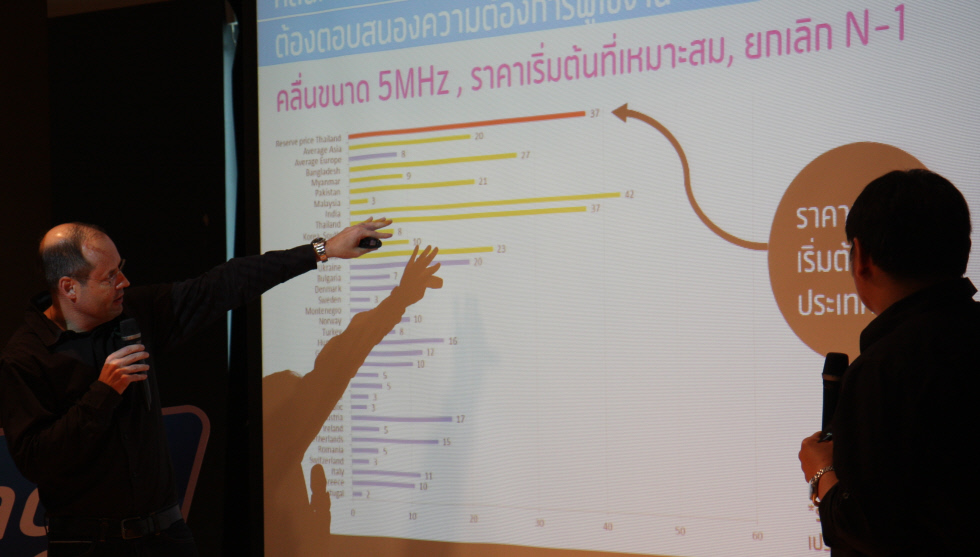
On 9 April dtac urged (handing and official letter to the regulator) NBTC to revisit the auction rules of 1800MHz spectrum. Dtac made a strong request to have the proposed original draft auction rules for 1800MHz spectrum reviewed for the good of the industry, the Thai consumers and the country’s ambition of Thailand 4.0.
“DTN [Dtac TriNet] would like to draw NBTC’s attention to our proposals as per our referenced letter to NBTC on April 9, 2018. We strongly believe that the proposed original draft auction rules for 1800 MHz spectrum needs substantial improvement if NBTC is to conduct a successful auction and maximize the benefit for industry, consumers and the ambition of Thailand 4.0,” said Rajiv Bawa, Chief Corporate Affairs and Business Development Officer of dtac.
Later in the same month (25 April), dtac sent a second “signal” describing the upcoming auction as out of step with needs of the telecommunications industry and digital consumers.
dtac again reiterated the unintended consequences of the auctions rules for the upcoming 1800 MHz spectrum auction being lower auction revenue, resulting in unsold spectrum and producing an inefficient market outcome.
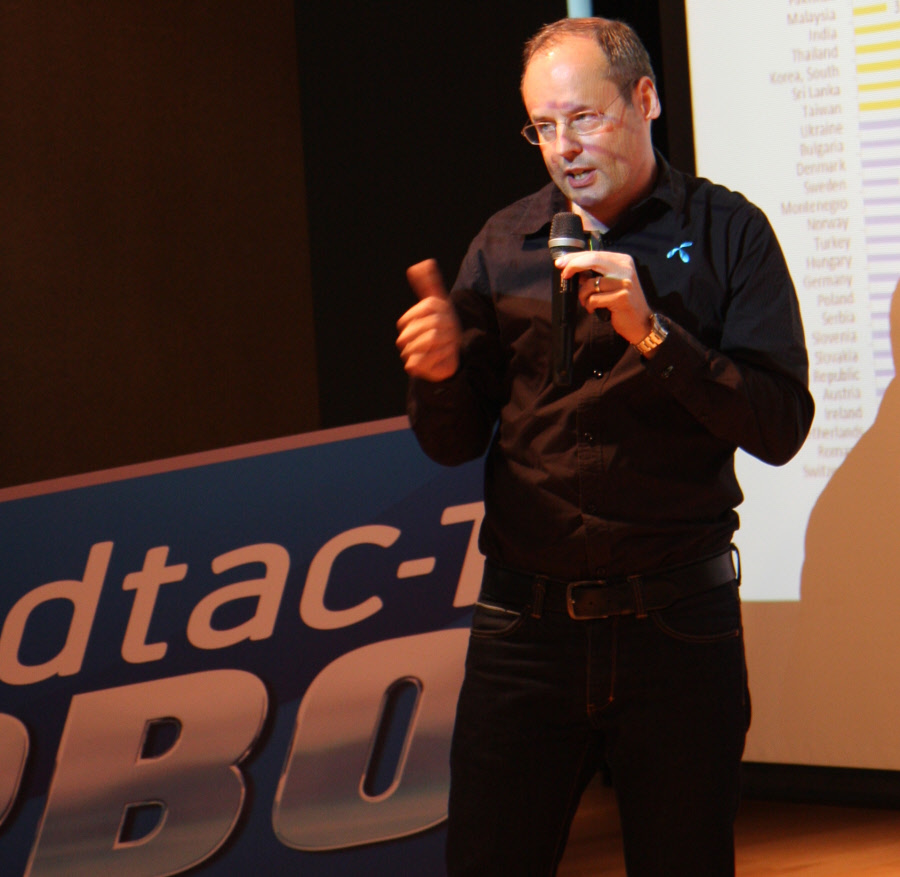 “Thailand is currently facing spectrum scarcity to serve the rapid growth of data consumption as well as the digital disruption being experienced. In order to realize Thailand 4.0, the government should prioritize the effectiveness of spectrum management as one of the top national agenda,” commented dtac’s outgoing Swedish CEO, Lars Norling,
“Thailand is currently facing spectrum scarcity to serve the rapid growth of data consumption as well as the digital disruption being experienced. In order to realize Thailand 4.0, the government should prioritize the effectiveness of spectrum management as one of the top national agenda,” commented dtac’s outgoing Swedish CEO, Lars Norling,
In the evening Thursday 14 May dtac’s Board took its decision not to participate in the auction, after deliberating on the formal Information Memorandum and auction details. “Dtac has considered the auction carefully and concluded that dtac currently has enough high-band spectrum to handle the growth of data services. Moreover, the auction conditions did not allow for long-term value creation for our customers and shareholder,” said Lars Norling as dtac held a press conference on Friday 15 May. “As always, dtac will continue to ensure it holds enough spectrum to serve the growing needs of its customers. And we will take all necessary preparatory measures to ensure that no customer is adversely impacted by the concession expiry.”
Dtac’s key reasons for not participating in the MHz spectrum auction are three. “We have been very open and transparent from the very beginning, from the first consultation, that we have concerns over the auction rules, the same concerns as international organisations have as well,” said the CEO.

The operator stated that Thailand is an extreme outlier when it comes to spectrum auction prices. Compared to some of their regional neighbours, Thais pay more for their mobile internet connections while getting slower speeds. Ultimately, these conditions can also lead to inadequate infrastructure development and lasting damage to Thailand’s digital economy.
“You see Thailand really sticking out with its very high reserve price versus other auctions,” commented the dtac CEO.
The operator maintains that the reserve price based on the winning price of the last 1800MHz auction is not a proper practice. “It was driven by the bidder who was unable to pay for the license. As such, the proposed reserve price is excessively too high. If spectrum is sold at all at that price level, it will likely cause financial problem for the winner to pay the auction price as it has already happened.”
“The government should not set reserve prices at levels which are certain to leave spectrum unsold and unused. Prices need to fall to permit the industry to use more frequencies to the benefit of Thai subscribers and society as a whole. Recent mistakes by governments and regulators in India and Bangladesh need not be repeated in Thailand.”

The second reason is the so called License Block Size: “The proposed three licenses of 2 x15 MHz is not practical taking into account the different demands for spectrum of the potential bidders and will likely leave spectrum unsold in the auction. The 2×5 MHz block size will offer more flexibility for the bidders to buy the spectrum at the amount best serving their real demands based on their specific spectrum inventory, business plan and financial status. The smaller block size will also incentivize new entrants as the barrier to entry will be less. As the latest wireless technologies are designed to apply for the spectrum of 2×5 MHz for highest efficiency, most countries put forward the auction of 2x5MHz block size; recent examples of this approach include spectrum auctions in Malaysia, Myanmar, Bangladesh, Australia, Germany and the US.”
Third is the so called ‘N-1 Rule’ by which the regulator would withhold spectrum and sell fewer spectrum licenses than the number of bidders. Dtac strongly disagrees with this: “It is widely known that Thailand needs to increase spectrum availability significantly in order to catch up with other countries. Contrary to this notion, the N-1 rule will increase scarcity of spectrum as the number of licenses sold will be less than the number of bidders. Apart from the negative impact on the industry and the country, this is a new rule which has never been applied before in any auction and is considered unfair to the bidders.”
dtac urged NBTC to take a look at the payment terms in the upcoming auctions and make sure that the payment terms are established in a rational way. As clear evidence that the financial pressure on the operators is extremely high points to that previous winners have asked for payment relief two years after the 2015 auctions.
In contrast with Thailand’s high-band spectrum availability, dtac underscored the pressing need to make more low-band spectrum available for telecommunications, ensuring network quality for those outside of dense urban areas. Low-band signals allow the furthest coverage distances and therefore greater access to mobile connectivity, reaching rural populations where the high-density networks needed for high-band spectrum would be unsustainable. Currently, there is no roadmap for low-band spectrum availability despite keen interest from all operators.
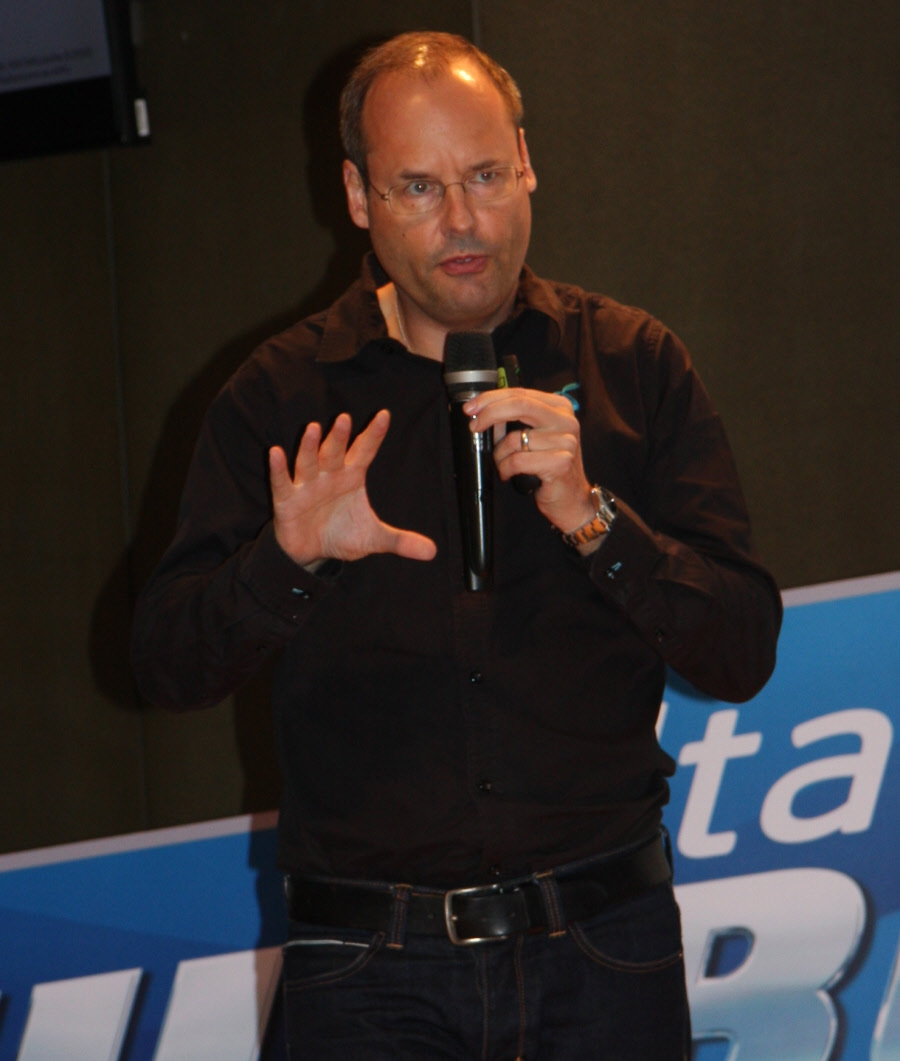 “If there is a new Information Memorandum announced we will look at that and take a new decision based on that,” Lars Norling also said.
“If there is a new Information Memorandum announced we will look at that and take a new decision based on that,” Lars Norling also said.
In the meantime, to secure a smooth transition for all its customers, dtac submitted a joint consumer protection plan with CAT on June 7, 2018, for temporary provision of services in the 850 MHz and 1800 MHz bands. This aims to ensure uninterrupted services and follows the practice by other operators in the past.
Dtac is adamant that its customers should be granted the same rights as those of other operators, as per NBTC regulations: “1800 MHz should be granted remedy until the first day of operation of the winning bidder; and as 850 MHz has not be auctioned, it should be granted remedy until there is a new licensee ready to operate it.”
Under the existing NBTC regulations, in a remedy period mobile operators whose concessions have expired have to continue providing service for remaining users on the net concessions network, but cannot benefit financially from that remedy period.
“The 850 Mhz was never part of the action, however this concession will expire as of 15 September. We are now looking at different measures of ensuring that we have adequate 3G coverage but that we also realise that low band is important and hence we are looking at how we can increase that into the dtac spectrum mix,” said Rajiv Bawa.
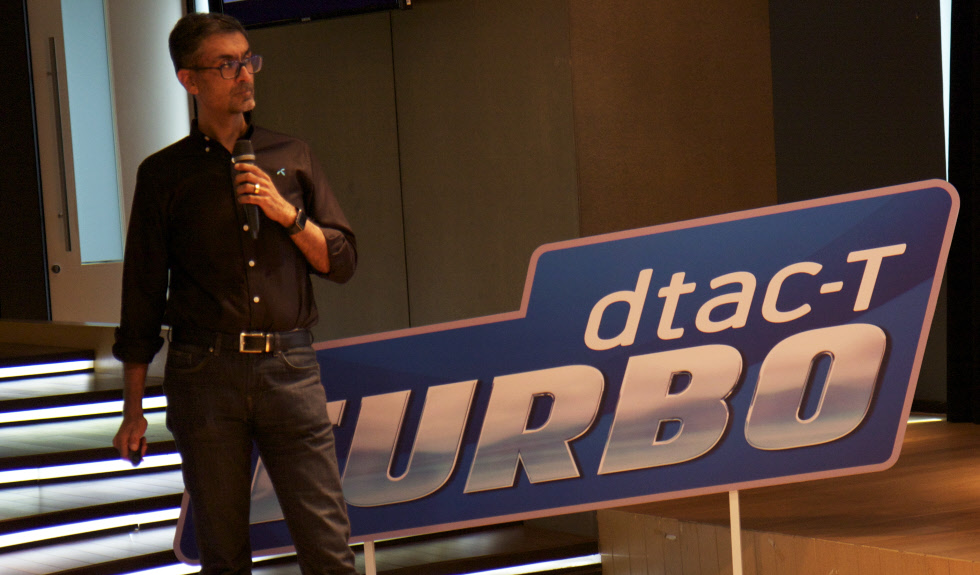
“We strongly believe that because 850 is not being auctioned dtac customers should not be discriminated and we should have 850 available for a remedy period, because that has happened before. We also believe it’s a joint responsibility between dtac, CAT and NBTC to ensure that the customer has service.”
dtac still has 2G customers that are gradually being migrated to 3G. “Our plan for the 2G network is that in the long run we strongly believe that 2G networks have to be closed as countries start to look at 5G and plan for higher connectivity networks.”
The game-changer for dtac for now is no doubt the new agreement, landed in April and lasting through 2025, between TOT and DTN to launch 4G LTE-TDD on 2300 MHz spectrum for first time in Thailand. DTN was selected out of six participants in the partner selection process to become TOT’s partner in providing wireless broadband service on this spectrum.
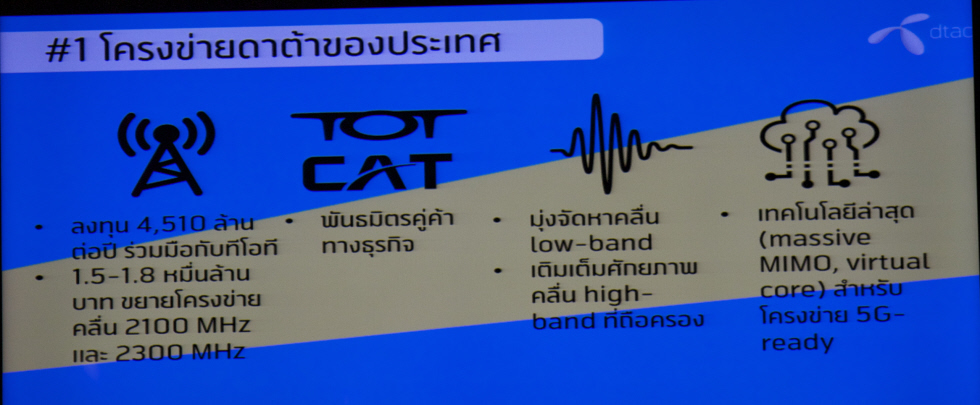
“This major collaboration with TOT to optimize Thailand’s widest bandwidth of 60MHz in 2300MHz spectrum will immensely improve consumers’ digital experiences through greater speeds, more capacity and even smoother network services. The use of valuable 2300MHz spectrum is a significant effort to uplift Thailand’s competitive position in ASEAN and promote quality of life in our rapidly evolving digital society,” Lars Norling commented on the deal.
In early June ‘dtac TURBO’ was launched in this new 4G TDD network. The TDD (time division duplexing) technology provides smooth data transmission even during peak periods.
“As the 2300 MHz spectrum operates on 4G TDD, its benefits are even greater on download capacity, which is increasingly critical given the changing behaviours of Thai consumers who now stream several hours of video per day. Even without 1800 MHz and 850 MHz, dtac has more download capacity per customer than its competitors (dtac: 2.75 MHz per million subscribers, competitors: 1.37 MHz and 1.99 MHz). dtac’s customers will therefore not be affected by the loss of 1800 MHz.”
dtac also holds 30 Mhz on the 2100 MHz spectrum under the license system and is also rolling out new cell sites faster than ever in its history to bolster its network. It is adding about 4,000 3G/4G 2100 MHz sites per year in 2017-2018. In addition, dtac committed to adding a minimum 4,000 dtac TURBO sites in 2018 as per its agreement with TOT, actually aiming for up to 7,000 such sites by year-end.
Mr. Prathet Tankuranun, Chief Technology Officer, dtac, said: “dtac is fully committed to building the best data network in Thailand..Thanks to our strategic partnership with TOT, we can explore new business opportunities like fixed wireless broadband. And our partnership with CAT will also allow us to keep operating the towers that are under the concession ending Sep 15, 2018. This will ensure continuous service for our customers and the best experience possible.”
“Our customers can rest assured they will have service continuity. We have the most high-band spectrum and are rapidly building the best data network in Thailand, not just for today but also for tomorrow. What all telecommunications operators now want is a clear roadmap for low-band spectrum, to keep up with Thai data consumption both in urban centres and across the whole country,” said Lars Norling.
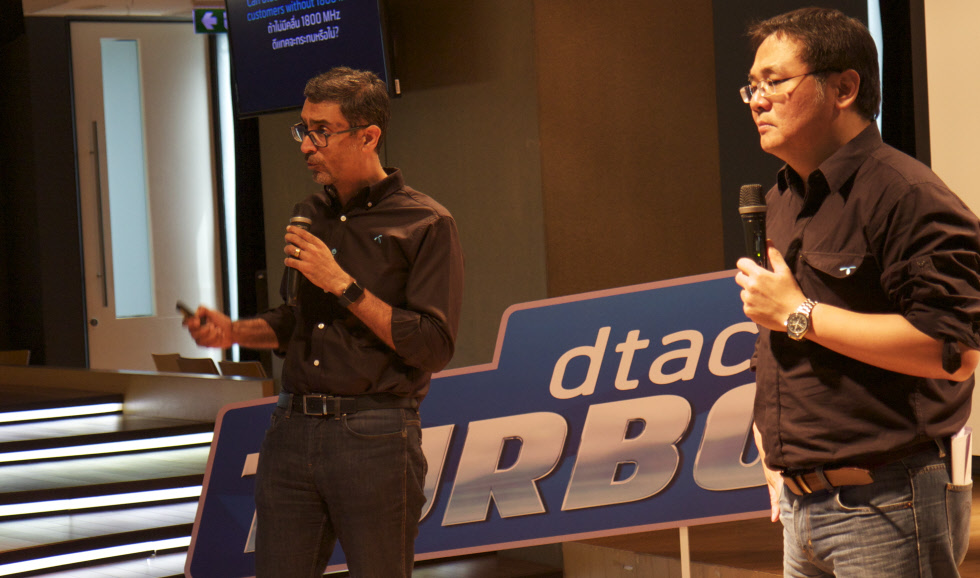
I think what needs to happen now for NBTC, and that is extremely important, is to look at this a little long term to ensure there is enough clarity on when what spectrum will be made available and about the guidelines of some rules so that operators can better plan their investments. For us to go into 5G we need to take some decisions around equipment and how to roll it out,” said Rajiw Bawa.
There is as vision for Thailand 4.0 and mobile infrastructure plays a key role in getting us there so we need to work together as and industry, regulator and government,” he added.
“There is plenty of spectrum bands available in Thailand so to move into 5G and Thailand 4.0 is pretty easy; have a clear spectrum roadmap and then have auction rules that are aligned with what is used now in most countries,” commented the CEO.
